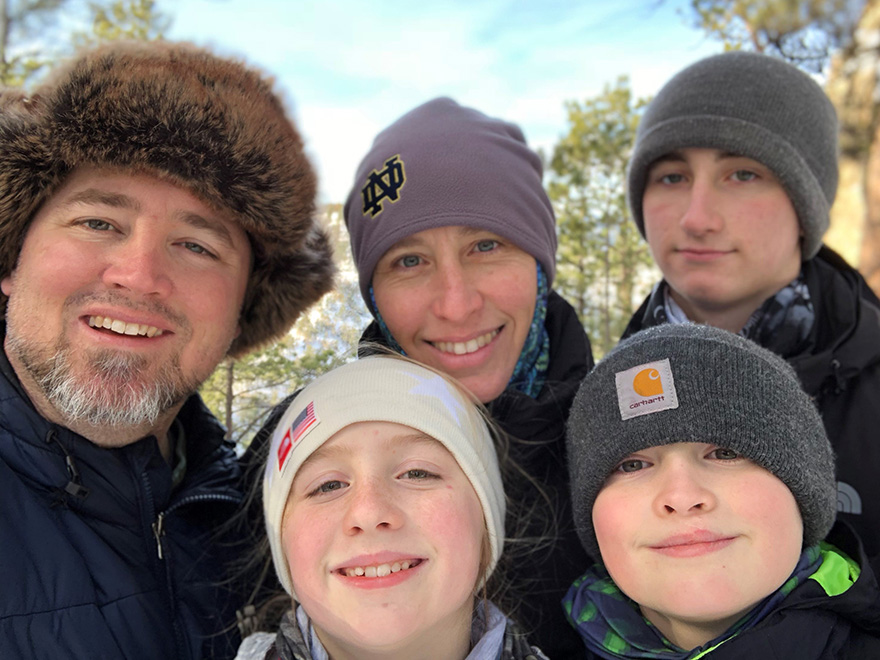We Hand on That Which Marks Us
by Josh Noem
I was riding in a car with my son, Simon, recently and we started trading jokes. He’s 12.
“What do you call a deer with no eyes?” he asked. “No-eye-deer.”
“What do you get when you cross an elephant with a rhino?” I responded. “’Ell if I know.”
“What do you call a fish with no eyes?” he came back. “Fsh.”
A good joke sticks with you. That eleph-ino joke has been rattling around in my brain for decades. And now, the chuckle it sparked in my son has planted that same chain of words somewhere deep in the folds of the grey-pink machine churning under his skull. Someday he’ll bring it out and hand it on to someone else. Just like I’m passing along his no-eye-deer to you.
We receive and pass along more of ourselves than we know. Some things, like a good joke, we hold on to and share with intent — they are little crowbars that we wedge under each other’s feet to lift them up an inch or two. After my grandpa died, whenever my grandma felt down or low or sorry for her life, she’d make cookies and lemonade and go visit someone. Knowing that she did that makes me want to be more generous and resilient. And in the desiring of those good things I find them.
It doesn’t take much living to know that we hand on ugly things, too. Our scars skew our vision and hobble our steps, and we usually don’t realize we’ve stepped on someone’s toes until it’s too late.
It’s impossible to underestimate how often this happens when you are raising children. They are experts at exposing hidden values and vulnerabilities — raw, tender places in your heart you carried around with blissful ignorance until they poke at them in their innocence and it feels like they are stirring up an anthill inside you. Anger gushes out, then shame, then regret that you are tracing your same scars in them.
It’s the old therapy adage: hurt people hurt people. We tend to inflict the same kind of pain we’ve received. But the opposite can be true, too, right? We love others in the way we’ve been loved, don’t we?
The words and experiences that speak to us leave a mark. When we encounter other people, isn’t that what we’re looking for? We’re trying to read the shape and color of each other’s interior life — not in a skeptical or accusatory way, but with curiosity. We’re always asking, “Who is this person? What are they about?” Having bumped into one another, we walk away with smudges.
As a parent, underneath all the day-to-day tasks of getting kids to and from practices and games and homework and dinner and laundry, my deepest hope is that we mark them with faith and hope and love. That usually has very little to do with what we say. It usually is something that is communicated and received by what we do — and, more fundamentally, how we do it.
So what would happen if we paid attention to those invisible things we give away to our kids? And what if we began looking for ways to be marked by them, in turn?
St. Teresa of Avila said that if you are feeling indifferent about your interior life, seek out people who are better than you and spend time with them. Goodness is sticky — it rubs off on us.
Something deep inside us recognizes goodness in others — we can smell it just as surely as we can smell good food, and it awakens a desire in us. Our hearts are hungry and they want to grow — what if we fed them with rich, robust examples? What if we searched for goodness in one another and feasted together?
We organize our day around food for our bodies — we plan our meals, we shop for groceries, we eat our vegetables. Shouldn’t we give at least as much thought to how we nourish our spirits? We live on more than bread alone — isn’t that true?





